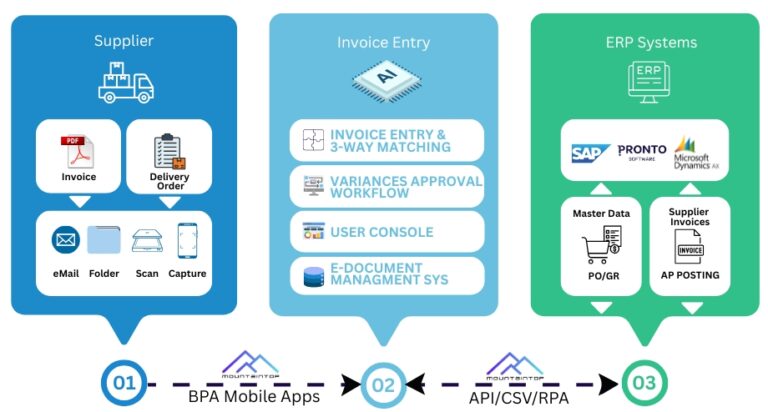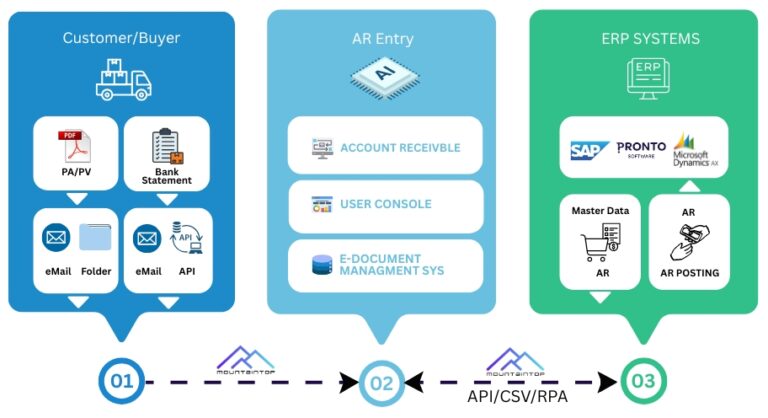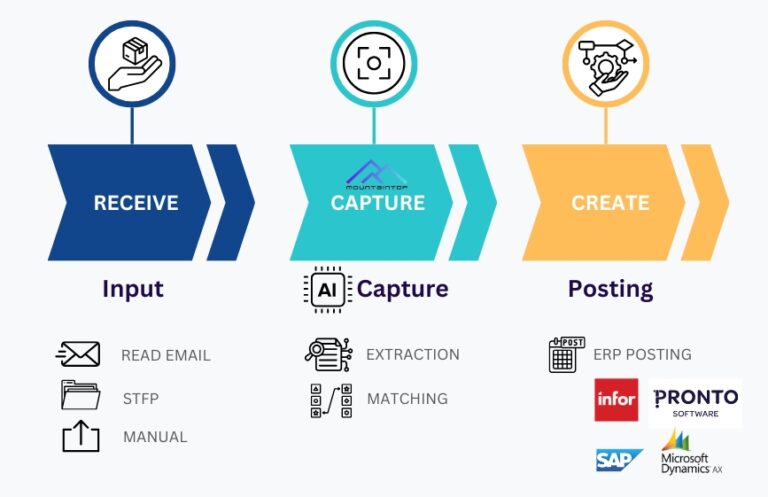Why Agentic AI?: Where Imagination Meets Innovation!
Agentic artificial intelligence (AI) represents a significant advancement in automation, as it enables systems to not only perform tasks but also to make informed decisions based on contextual understanding. This capability enhances operational efficiency and reduces human oversight, allowing organizations to allocate resources more effectively. By leveraging agentic AI, businesses can streamline processes, adapt to changing conditions in real time, and improve overall productivity. Furthermore, the integration of such intelligent systems fosters innovation, empowering organizations to focus on strategic initiatives while routine tasks are autonomously managed. Thus, the adoption of agentic AI for automation is a pivotal step toward achieving a more responsive and efficient operational framework.

AGENTIC AI SOLUTIONS
Agentic AI and the Future of Intelligent Workplace
Agentic AI refers to AI systems composed of agents that can autonomously make decisions and act to achieve specific goals with limited human supervision. These systems can handle complex, multi-step tasks and workflows, learn from their interactions, and adapt to new situations. Essentially, agentic AI is about creating AI systems that exhibit autonomy and goal-driven behaviour, enabling them to solve problems and automate tasks without constant human intervention.

AP AUTOMATION
Agentic AI Powered
Accounts Payable Automation refers to the use of technology to streamline and optimize the processes involved in managing a company’s accounts payable function. This automation encompasses the electronic handling of invoices, approvals, payments, and record-keeping, minimizing the reliance on manual interventions. Implementing accounts payable automation significantly impacts business operations by enhancing efficiency, reducing processing times, and lowering the risk of human error.
- AI Advanced Data Extraction
- AI 3-Way Matching
- Variance Approval Workflow
- User Console
- E-Document Management Sys

AR AUTOMATION
Agentic AI Powered
Automating Accounts Receivable (AR) involves using MountainTop BPA solution is to streamline and manage the processes related to collecting payments from customers for goods or services sold on credit. This includes tasks like invoicing, payment tracking, collections, and reporting, which are handled with minimal manual intervention through MountainTop BPA platform. Automation typically leverages features like electronic invoicing, automated payment reminders, real-time data analytics, and integration with payment gateways to optimize the AR workflow.
- AI Advanced Data Extraction
- Variance Approval Workflow
- User Console
- E-Document Management Sys


SALES ORDER CREATION AUTOMATION
Agentic AI Powered
Deploying an MountainTop Agentic AI solution to automate sales order processing presents a transformative opportunity to enhance operational efficiency and accuracy. MountainTop Agentic AI solutions, endowed with autonomous decision-making capabilities, can execute complex tasks such as order validation, inventory checks, and customer communication without continuous human oversight. By intelligently interpreting data and dynamically adjusting processes, these AI agents reduce errors, accelerate processing times, and enable seamless end-to-end automation. Harnessing MountainTop Agentic AI in sales order workflows not only minimizes manual intervention but also delivers scalable, consistent, and adaptable performance critical for meeting evolving business demands.
- AI Advanced Data Extraction
- Sales Approval Workflow
- User Console Inventory Check
- E-Document Management Sys
ADVANCED AI SCANNIG
MountainTop BPA platform is integrated with OpenAI for data extraction from operational documents. Automate data capture, optimize workflows, and eliminate manual tasks to boost productivity. Powered by advanced AI algorithms, the AI intelligently identifies, extracts, and indexes key data points from various documents, including supplier invoices and e-Invoice data from LHDN.
The MountainTop BPA Platform enhances document archiving with powerful search capabilities, enabling users to locate documents effortlessly using content, keywords, and metadata. By automating data extraction and updates, businesses can eliminate manual errors, enhance accuracy, and improve accessibility—streamlining operations for greater efficiency.
Digital Asset Management with AI
Digital Asset Management (DAM) is a centralized system used by organizations to store, organize, manage, and distribute digital files—such as images, videos, documents, presentations, and creative assets. It helps ensure that teams have easy, secure, and efficient access to the right content at the right time, improving brand consistency, collaboration, and productivity across departments.
Smart ERP: Harnessing AI for Intelligent Business Transformation
The integration of Enterprise Resource Planning (ERP) systems with Artificial Intelligence (AI) has significantly transformed business operations, leading to notable breakthroughs, innovative applications, and persistent challenges. Here’s are some of the latest developments:
- Enhanced Decision-Making: AI algorithms are increasingly being embedded in ERP systems to analyze vast amounts of data, providing actionable insights and enabling more informed decision-making. Predictive analytics powered by machine learning helps forecast demand, optimize inventory, and manage resource allocation.
- Automation of Routine Tasks: Robotic Process Automation (RPA) is being integrated with ERP systems, automating repetitive tasks such as invoice processing, data entry, and reporting. This reduces human error and frees up employees for more strategic work.
- Natural Language Processing (NLP): Recent advancements in NLP are allowing users to interact with ERP systems through conversational interfaces. This makes it easier for non-technical users to retrieve information, generate reports, and perform tasks without needing deep technical knowledge.
- Real-Time Analytics and Reporting: AI enhances real-time data analysis and reporting capabilities within ERP systems, allowing businesses to make quicker adjustments to operational strategies based on current data trends.
- Predictive Maintenance and Supply Chain Optimization: AI-driven analytics are helping businesses predict equipment failures before they occur and optimize supply chain logistics by analyzing patterns in consumption and delivery times.
- Inventory Management: Businesses are utilizing AI algorithms to optimize stock levels by predicting demand fluctuations and reducing excess inventory, leading to significant cost savings.
- Financial Planning and Analysis: AI tools integrated into ERPs help improve forecasting accuracy by analyzing historical data and identifying trends, thus facilitating better budget planning and financial control.
- Customer Relationship Management (CRM): AI-powered insights from ERP systems are enhancing CRM capabilities, allowing companies to better personalize customer interactions and improve service delivery.
- Human Resource Management: AI applications in HR modules facilitate recruitment through candidate screening, performance analysis, and workforce planning, all while adhering to diversity and bias reduction practices.
- Data Privacy and Security: Integration of AI with ERP systems raises concerns about data protection, particularly as these systems often contain sensitive business and customer information. Ensuring compliance with data protection regulations remains a top priority.
- Implementation Costs and Complexity: The integration of AI into existing ERP systems can be costly and complex, requiring significant investment in technology and training, which may deter smaller enterprises.
- Change Management: Organizations face challenges in managing the sociocultural changes that come with adopting AI and ERP integrations, as employees may resist changes or feel threatened by new technologies.
- Quality of Data: The effectiveness of AI in ERP systems heavily relies on the quality of input data. Organizations must focus on data cleansing, standardization, and governance to achieve optimal results.
- Skill Gaps: There is a shortage of skilled professionals who can effectively manage and analyze AI-driven ERP systems. Organizations need to invest in training to bridge this gap.
AI on Power SERVER
IBM Power Servers are designed for high-performance computing, seamlessly integrating AI-driven features to enhance data processing, automation, and decision-making. Key AI capabilities include:

AI-Optimized Infrastructure
IBM Power servers, like the IBM Power10, feature AI accelerators and Matrix Math Assist (MMA) to boost AI workloads directly on-chip.

Real-Time Inference & ML
AI models can be run directly on the server, reducing latency for predictive analytics, fraud detection, and automation.

Enhanced Security with AI
AI-driven security features help detect threats, prevent cyberattacks, and ensure compliance in real time.

AI Workload Optimization
AI dynamically allocates resources for faster data processing and improved efficiency in cloud, hybrid, and on-premise environments.

Seamless AI Integration
Supports popular AI frameworks like TensorFlow, PyTorch, and IBM Watson for advanced data analytics and automation.

AI-Driven Automation
Enhances ERP, database management, and business intelligence by reducing manual tasks and improving decision-making.
AI infused technology on Storage
IBM Storage leverages AI-driven automation, predictive analytics, and intelligent data management to enhance performance, security, and efficiency. With cyber resilience and smart optimization, it ensures faster insights, reduced costs, and seamless scalability for modern businesses.
Seamless Scalability
Adapts storage resources dynamically for hybrid cloud and on-premise environments.
Intelligent Data Tiering
Automatically moves data to the most efficient storage tier based on usage patterns.
AI Malaysia FAQs
We deliver AI business solutions that use advanced algorithms such as machine learning, natural language processing and agent-based automation to streamline workflows, extract insights and make smarter decisions. For example, our “Agentic AI” can handle multi-step tasks autonomously in your organisation.
Using such solutions allows you to reduce manual workload, improve accuracy and innovate how your business operates.
Because we are based in Malaysia and deeply aware of local business environments, regulatory requirements and market needs. Our AI-solutions page outlines our approach for Malaysian organisations: for example, we offer AI-powered AP Automation, AR Automation, and sales-order processing tailored for Malaysia.
By working with us, you get both global-capability AI and local-expert support.
We offer several AI business solutions including:
- AP Automation with advanced data extraction and 3-way-matching.
- AR Automation using machine learning to analyse data and improve receivables workflows.
- Sales-order automation where AI models predict production needs, validate orders and check inventory automatically.
These examples show how our AI solutions deliver real operational value.
We tailor the AI solutions for Malaysian conditions, local business processes, languages, data-context, regulatory compliance and regional infrastructure. On our page we emphasise our Malaysia-specific roll-out of “AI Malaysia” solutions that are built for the local market.
This ensures smoother implementation, better acceptance and faster ROI for your business in Malaysia.
Getting started is simple: contact us for a discovery call where we assess your current workflows, data readiness and automation opportunities. Then we propose the suitable AI business solution tailored for you (e.g., AP-Automation, AR-Automation, sales-order automation).
We will support you through implementation, integration with your existing systems (ERP, document-management, etc.), training your team, and monitoring performance so you see real results.

